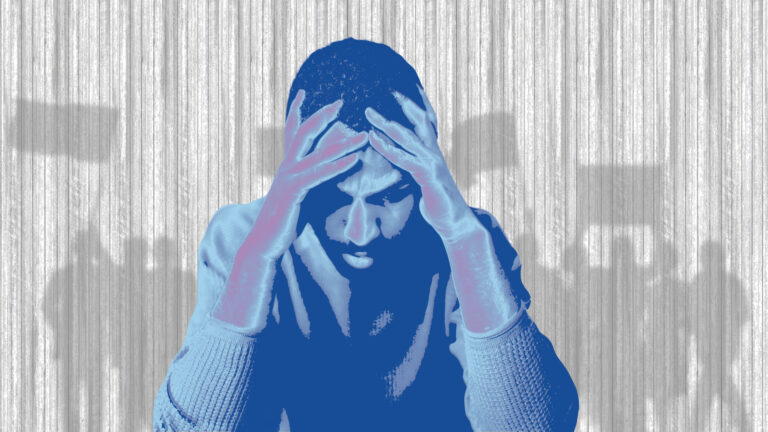 In a previous article, I claimed that the biggest issue confronting evangelicalism today is not whether to accept homosexuality and same-sex marriage, but whether to accept the diversity of views as compatible with Christian orthodoxy. In other words, can we agree to disagree on the nature and goal of human sexuality and still see our opponents’ position as compatible with the rest of Scriptural teaching?
In a previous article, I claimed that the biggest issue confronting evangelicalism today is not whether to accept homosexuality and same-sex marriage, but whether to accept the diversity of views as compatible with Christian orthodoxy. In other words, can we agree to disagree on the nature and goal of human sexuality and still see our opponents’ position as compatible with the rest of Scriptural teaching?
Evangelicals and the Future of Marriage
Young evangelicals like myself have an acute sense of the tension of debates over sexuality. We know we are in the minority when it comes to our society’s views of sexuality. Furthermore, surveys show that many young people who self-identify as evangelical are increasingly inclined to adopt the revisionist perspective on marriage. And so whenever younger Christians discuss these matters, I always try to listen in.
Matthew Lee Anderson and Isaac Sharp have written a series of essays in which they take opposing sides on the future of evangelicalism and perspective of sexuality. I commend all of their conversation to you (see the links at the bottom of this post), but I want to put before you a few of Matt’s comments about marriage as an “architectural doctrine.”
Is Division On Marriage Outside the Bounds of Orthodoxy?
First, listen to Matt sum up why the debate is not over sexuality and marriage (primarily), but over whether or not this division constitutes the kind of break that must necessitate labels of heterodoxy or heresy:
“It is not enough to simply look at the bitter divisions of the past as instructive on this score. Some of those divisions have been compatible with seeing each other as Christians. Others have clearly not: heresies are a real feature of the Church’s life, and while they have served an important role in invigorating and furthering orthodoxy, that instrumental purpose has never sanctioned one’s knowing participation in one.
Nor is it enough to assert that the ‘legitimate possibilities of the gender of one’s spouse’ do not put us near the boundaries of the tradition. It is on this question where the disagreement lies, and it is this question to which we would need to devote all our time and energy to understand and resolve.”
Matt’s point is that we cannot simply assert that same-sex marriage is far removed from the foundational, creedal affirmations of the Christian faith. That assertion must be proven, not merely stated.
Marriage as an “Architectural Doctrine”
Next, Matt introduces the concept of an “architectural doctrine:”
“The gender-binary at the heart of marriage is an ‘architectural doctrine’ of the Christian faith: it permeates the whole of Scripture, stands beneath the traditional naming of God as Father, is necessary for explaining Christ’s relationship to the Church, and generates an indispensable role for Mary in salvation history. Excising the doctrine would be nearer to a theological heart transplant than cosmetic surgery.”
What is an “architectural doctrine?”
Matt does not define the term here, but he does indicate what he means:
- It permeates all of Scripture.
- It undergirds other traditional teachings.
- It touches on soteriology.
I think the illustration we should use for this is a “load-bearing wall.” There are certain walls in a house or a building that can be removed without doing any damage to the overarching structure. But other walls are “load-bearing.” You move them at your own risk. The structure depends on these walls for support. This is what Matt is getting at when he speaks of marriage as an “architectural doctrine.”
How Many Steps is Marriage from God?
At another point in this conversation, Matt gives reframes this concept in the form of a question:
“One way to frame the question is, ‘how many steps from the doctrine of God is the doctrine of marriage?’”
According to Matt’s reflection, the steps are few, leading him to wonder:
“If gender does not matter theologically for *our* marriages, then why does the gender of the Incarnate Lord matter? And if Christ’s maleness is fungible, able to be replaced without loss by any other gender, then why should we view his instruction to pray ‘Our Father’ as in any way binding on us? Surely, that too can be dismissed as an accident of history, an archaic relic of a patriarchal culture that had assumed a gender binary where there need not be on.”
If gender is indeed a good gift from God, and if marriage reinforces and establishes the beauty of God bringing together the two halves of humanity in order to fill the world with more of His image-bearers, then we cannot cut out gender from marriage without it affecting how we view God as our Father and Creator. Matt writes:
“To put the point differently, it may be that the grammar inherent in the gender asymmetry of Genesis 1-3 is assumed throughout the entire revelation, and that it is not annihilated in Christ but is redeemed and restored. If so, then denying that grammar its central, organizing role through embodying forms of life that run against it, invariably will impinge upon our knowledge and understanding of who God is.”
Marriage and the Domino Effect
Here, Matt is briefly teasing out the logical implications of a revisionist view of marriage in order to show how quickly they impact other doctrines about God and humanity.
Right now, the “revisionist evangelical” approach is to take the relatively few number of references to homosexuality in Scripture, offer innovative interpretations that have never been accepted (or even imagined) by Christians throughout history, and then claim on the basis of those scant references that this is not a big deal, and only conservative fundamentalist literalist readers of the Bible make it so.
But this way of reading the Bible is painfully reductionistic, failing to understand the Scriptural storyline, or the purpose of God’s creativity in giving us gender in the first place.
Matt continues:
“However, it is—I think—the heart of the disagreement over whether or not affirming gay marriage is compatible with traditional orthodoxy. While feminine pronouns and imagery have been deployed often on the edges of the tradition, they have never been given a central programatic position in the church’s inner life of worship, as contemporary advocates wish to see done. The question of the nature of the tradition, and the boundaries of what counts as ‘traditional’ is near the heart of whether it is possible for churches to become inclusive and remain orthodox.”
That is a vitally important question. Can one change just their understanding of marriage and leave all of the other historic doctrines of the Christian faith intact?
I call this the “domino” effect that the schismatic view of marriage has on other doctrines. You cannot knock over the domino of marriage or try to replace it with something else and hope to keep all the other dominoes standing.
We’re early on in witnessing such an experiment, but where it has been tried, the initial results don’t look very promising. We can start with the other elements of Christianity’s sexual ethic. Do Christians who reject the historic position on homosexuality and marriage maintain all the other aspects of Christian teaching (no sex before marriage, outside of marriage, marriage between two people, etc.)? Some try to do so, but many do not.
David Gushee, a proponent of same-sex marriage, sees “moral chaos” within many Christian circles. He writes:
Increasingly I am in contexts where I have to call people back from drifting too far “left,” as with polyamory. I think I can make a strong case rooted in Jesus, the Bible and Christian best practices for the version of Protestant ethics that I teach. But I realize I am competing with a whole lot of other voices.
Gushee’s column suggests that the progressive wing of the church that has embraced homosexuality and same-sex marriage is veering off into the territory of accepting other sexual practices the Bible forbids. Those who, with Gushee, take their “bold step forward” on marriage suddenly find themselves on a rapidly descending escalator.
But let’s shift this question back to doctrine, the “load-bearing wall” that Matt described. Have mainline denominations been able to hold revisionist views of sexuality and maintain their orthodox beliefs in other matters? No. In the mainline denominations, we have seen major doctrines of the faith redefined or set aside, including the traditional understandings of atonement, the reality of hell, and the inspiration of Scripture.
The evangelical observer might say, Those denominations had all those problems before the question of marriage came up! We can show a different way, how to have a high view of Scripture and a new definition of marriage at the same time. And so, there are self-identifying evangelicals who have joined the schismatics on issues of marriage and sexuality and yet who want to remain thoroughly orthodox in all other matters. I do not question the sincerity with which they try to hold that perspective. But with Matt, I have to ask the question of coherence:
“The question, however, is whether such “theologically traditional” organizations are internally coherent, and whether gay marriage itself has any substantive bearing on how the Church speaks of and understands God, such that to affirm gay marriage implicitly—even if the advocates do not themselves recognize it immediately—commits one to doctrinal positions that depart from traditionally orthodox formulations of God’s identity.”
Evangelicals who believe they can remain robustly orthodox on all other matters, while changing their view of marriage, should ask this question: Why is it that only the mainline denominations (which had already jettisoned so many traditional Christian doctrines) have so eagerly embraced a new definition of marriage?
For Further Reading
The book I mentioned last week is a game-changer. Unchanging Witness deserves a spot on every thoughtful Christian’s shelf. I know of no other resource that so effectively and exhaustively connects biblical exegesis to the teaching of the church throughout history. Innovative arguments for reinterpreting the Bible’s teaching on marriage and sexuality sound thin and shrill when compared to the richness and authority of Scripture and tradition’s unified voice.
I also commend the dialogue between Matthew and Isaac to you.
Matthew Lee Anderson, Mere Orthodoxy Blogger
- Essay: Will the controversies ‘fade away’?
- Response to Isaac Sharp: Response to Isaac Sharp
- Response to Isaac Sharp: The Limits of Orthodoxy
- Isaac Sharp, PhD candidate, Union Theological Seminary
- Essay: Current Trends and Future Prospects
- Response to Matthew Lee Anderson: Respectful Disagreement on the Possibility of “Agreeing to Disagree
- Response to Matthew Lee Anderson: Lessons Learned

















